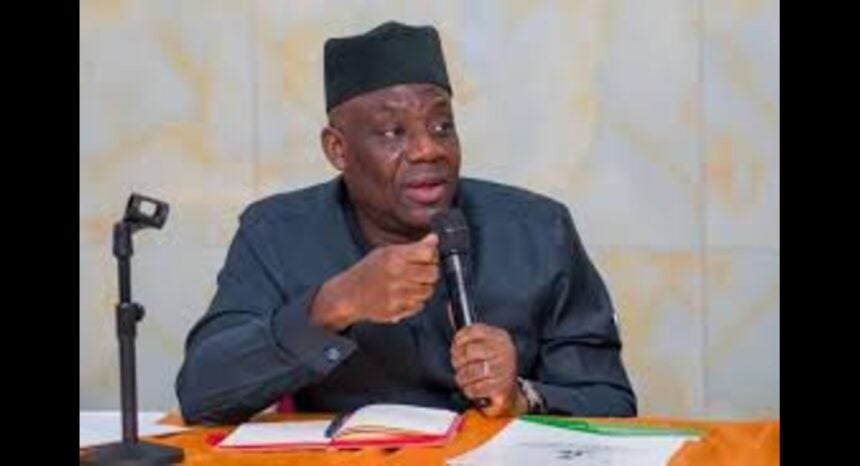The Federal Ministry of Education has signed a landmark Memorandum of Understanding (MoU) with the Rural Electrification Agency (REA) aimed at providing 24-hour electricity in additional eight universities across the country.
The agreement was signed under the Federal Government’s Energizing Education Programme (EEP).
The ceremony was held at the solar-powered mini-grid site of the University of Abuja, one of the beneficiaries of this transformative initiative, according to a statement by the Director, Press and Public Relations, Federal Ministry of Education, Mrs. Folasade Boriowo on Thursday in Abuja.
Minister of Education, Dr. Maruf Olatunji Alausa, speaking at the event reaffirmed the government’s commitment under the leadership of President Bola Ahmed Tinubu to advancing human capital development through reliable and sustainable energy infrastructure in the education sector.
ALSO READ: Katsina govt installs solar power in hospitals, schools, others
He expressed heartfelt gratitude to the President for prioritising uninterrupted 24-hour electricity supply for all federal and state-owned tertiary institutions.
Dr. Alausa revealed that the Federal Government is constructing mini-grid systems ranging from 1.1 to 12.5 megawatts across federal and state tertiary institutions, as well as teaching hospitals.
To date, 24 institutions have benefited from Phases I to III of the programme. In alignment with the Renewed Hope Agenda, The Ministry through TETFund would support the development of an additional four to six independent mini-grids with capacities between 2 and 10 megawatts at selected tertiary institutions across the country.
Another key highlight of the event was the signing of a collaboration agreement between the REA and eight additional universities under Phase IV of the EEP.
These institutions include the University of Lagos (UNILAG), Obafemi Awolowo University (OAU), University of Nigeria, Nsukka (UNN), Federal University Wukari, Ahmadu Bello University Zaria, Federal University Dutse, University of Benin, and University of Ibadan. All Vice Chancellors were in attendance, except that of the University of Benin, who was ably represented.
Dr. Alausa emphasised that uninterrupted electricity supply would significantly enhance student learning environments, improve staff productivity, support cutting-edge research, and promote entrepreneurship within university communities ultimately contributing to national economic growth and GDP.
Accompanying the Minister of Education was the Minister of State for Education, Professor Suwaiba Said Ahmad.
The Managing Director of the Rural Electrification Agency, Abba Aliyu, highlighted that Phases I to III have provided over 100 megawatts of clean electricity to 24 federal universities and their teaching hospitals, positively impacting over 600,000 students and 50,000 staff members.
He also noted that Phase II included clean energy projects for two universities and two teaching hospitals, while Phase III covering eight universities and one hospital is nearing completion and will soon be commissioned.
In his goodwill message, Professor Abdullahi Yusuf Ribadu Executive Secretary of National University Commission commended the Federal Government and REA for launching a practical and sustainable solution to the power challenges in tertiary institutions.
He praised the Energizing Education Programme as a cost-effective initiative that directly enhances teaching, learning, research, and overall institutional performance.
Acting Vice Chancellor of the University of Abuja, Professor Patricia Manko Lar, expressed deep appreciation to the Ministry and REA for what she described as a timely and impactful intervention.
She noted that the project would address long-standing electricity challenges, reduce operational costs, and significantly enhance academic delivery.
“The Federal Ministry of Education reaffirms its commitment to deepening this transformative agenda through continued collaboration with REA and institutional partners across Nigeria and beyond,” the statement added.






